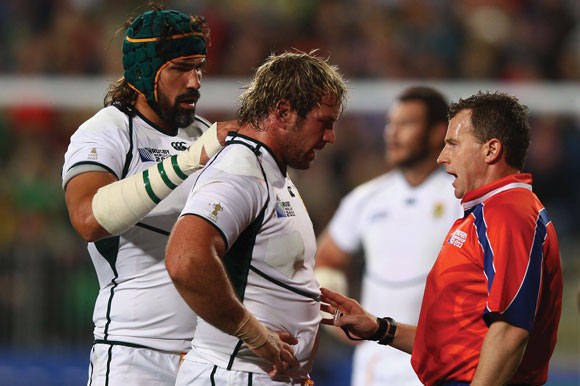The voice

For vocal communication:
- When explaining decisions, you should be succinct and, wherever possible, use the language of the World Rugby Law book.
- This verbal explanation should be accompanied by the appropriate secondary signal, and can be directive (a player has to do or has to avoid doing something, e.g., “Release the ball”) or informational (a player receives information, e.g., “It is a ruck”).
- Preventative statements should be used sparingly and should not be used all the way through the game.
- Preventative statements should not be used repeatedly.
- The preferred communication method is to use the team’s name or colour plus the number of the player.
- Match officials should not engage in extended dialogue with players other than the captain, and even then only on specific issues.
- Foul language should never be used by any match official.